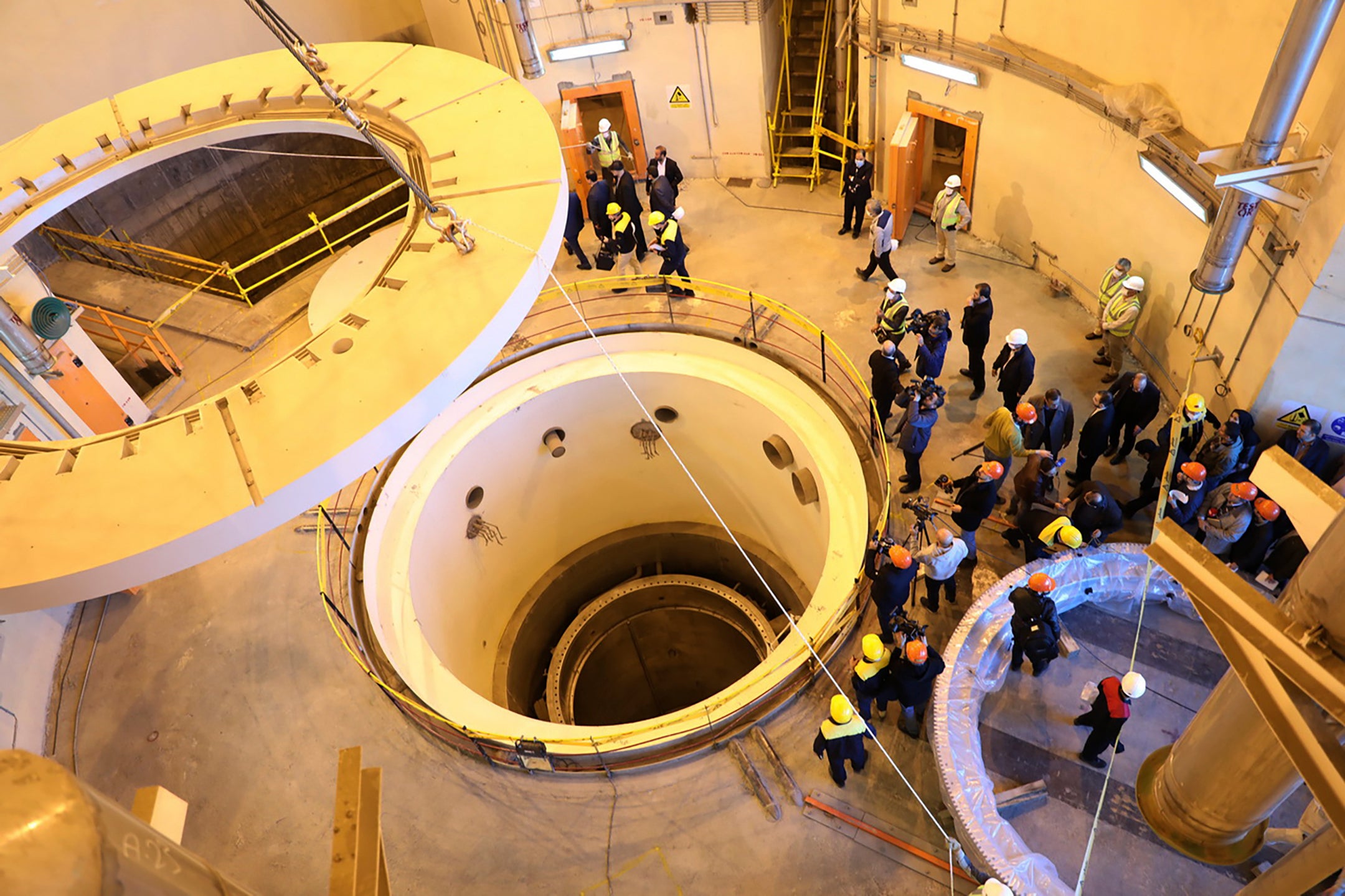UN atomic watchdog: Iran increases uranium stockpile further
The U.N. atomic watchdog says it believes that Iran has further increased its stockpile of uranium that is highly enriched to one short, technical step from weapons-grade levels

Your support helps us to tell the story
From reproductive rights to climate change to Big Tech, The Independent is on the ground when the story is developing. Whether it's investigating the financials of Elon Musk's pro-Trump PAC or producing our latest documentary, 'The A Word', which shines a light on the American women fighting for reproductive rights, we know how important it is to parse out the facts from the messaging.
At such a critical moment in US history, we need reporters on the ground. Your donation allows us to keep sending journalists to speak to both sides of the story.
The Independent is trusted by Americans across the entire political spectrum. And unlike many other quality news outlets, we choose not to lock Americans out of our reporting and analysis with paywalls. We believe quality journalism should be available to everyone, paid for by those who can afford it.
Your support makes all the difference.The U.N. atomic watchdog said Wednesday it believes Iran has further increased its stockpile of uranium that is highly enriched to one short, technical step away from weapons-grade levels.
The International Atomic Energy Agency also voiced increasing concerns over Tehran's lack of engagement with a probe that has become a sticking point in efforts to revive the Islamic Republic's nuclear deal with world powers.
In its confidential quarterly report, the IAEA told member nations that it believes Iran has an estimated 55.6 kilograms (122.6 pounds) of uranium enriched to up to 60% fissile purity, an increase of 12.5 kilograms since May.
That enrichment to 60% purity is one short, technical step away from weapons-grade levels of 90%. Nonproliferation experts have warned that Iran now has enough 60%-enriched uranium to reprocess into fuel for at least one nuclear bomb.
The IAEA report, which was seen by The Associated Press, also estimated that as of Aug. 21, Iran’s stockpile of all enriched uranium was at 3621.3 kilograms — an increase of 365.5 kilograms since the last quarterly report in May.
The Vienna-based IAEA said it was unable to verify the exact size of Iran’s stockpile of enriched uranium due to limitations that Tehran imposed on U.N. inspectors last year and the removal of the agency’s monitoring and surveillance equipment in June at sites in Iran.
While Iran long has maintained its program is peaceful, officials now openly discuss Tehran’s ability to seek an atomic bomb if it wanted.
The IAEA's assessment comes amid efforts to revive the 2015 nuclear deal, known as the Joint Comprehensive Plan of Action, which eased sanctions on Iran in return for curbs on its nuclear program.
The United States unilaterally pulled out of the accord in 2018 under then-President Donald Trump and reimposed sanctions on Iran, prompting Tehran to start backing away from the deal's terms.
Iran last week sent a written response in negotiations over a final draft of a roadmap for parties to return to the tattered nuclear deal, though the U.S. cast doubt on Tehran’s offer. Neither side elaborated on the contents.
Were the deal to be renewed, the IAEA report said, the lack of surveillance and monitoring since IAEA cameras were removed in June would require “remedial action” to reestablish its knowledge of Iran's activities during this period.
In a separate report, IAEA officials said they are “increasingly concerned” that Iran has not engaged on the agency's probe into man-made uranium particles found at three undeclared sites in the country, which has become a key sticking point in the talks for a renewed deal.
Last week, Iran’s hard-line President Ebrahim Raisi maintained that the IAEA investigation into the issue must be halted in order for the 2015 deal to be renewed.
The IAEA has for years sought answers from Iran to its questions about the particles. U.S. intelligence agencies, Western nations and the IAEA have said Iran ran an organized nuclear weapons program until 2003. Iran long has denied ever seeking nuclear weapons.
Iran was criticized by the IAEA’s board of governors, representing member states, in June over its failure to answer questions about the sites to the inspectors’ satisfaction.
Because Iran has not further engaged with the IAEA on the issue or offered “credible” explanations for the presence of these particles, the latest IAEA report said the agency “is not in a position to provide assurance that Iran's nuclear program is exclusively peaceful.”